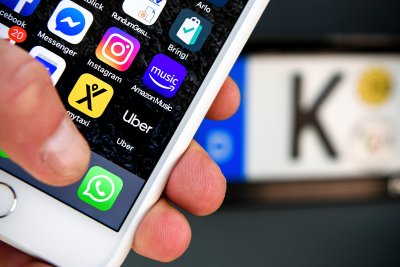
The U.S. Federal Trade Commission on Monday announced it is suing Uber for “deceptive” billing and cancellation practices with its Uber One subscription service. File Photo by Sascha Steinbach/EPA-EFE
April 21 (UPI) — The Federal Trade Commission on Monday sued Uber, the largest ride-hailing service in the world, for “deceptive” billing and cancellation practices with its Uber One subscription service.
The independent agency’s lawsuit was filed in the U.S. District Court for the Northern District of California, alleging Uber Technologies violated the FTC Act and the Restore Online Shoppers’ Confidence Act.
The FTC Commission voted 2-0 to proceed with the lawsuit with Commissioner Mark R. Meador recusing, according to an FTC news release.
The lawsuit does not involve the public company’s regular per-trip service.
Uber One customers receive no fee and discounts on service, including food delivery, for $9.99 month and “wrong promised savings of $25 a month,” the FTC said in a news release. There is also a yearly fee of $96 a year and the service began in November 2021.
“Americans are tired of getting signed up for unwanted subscriptions that seem impossible to cancel,” FTC Chairman Andrew Ferguson said in a news release. “The Trump-Vance FTC is fighting back on behalf of the American people. Today, we’re alleging that Uber not only deceived consumers about their subscriptions, but also made it unreasonably difficult for customers to cancel.”
The company, based in San Francisco, has “cancel anytime” marketing, the FTC said.
In the 44-page complaint, the FTC said the company obscures material information about the subscription, including using small, grayed-out text.
Also, customers say they were enrolled without their consent and charged before the free trial even ended.
And to cancel they had to click through up to 23 screens and take 32 actions to cancel, the FTC alleges.
“If a customer tries to proceed with cancellation, Uber can require them to say why they want to cancel, urge them to pause their membership or, if that failed, present them with offers to stay,” the press release said. “Some users are told they have to contact customer support to cancel but are given no way to contact them; others claim that Uber charged them for another billing cycle after they requested cancellation and were waiting to hear back from customer support.”
Uber spokesperson Noah Edwardsen told CNBC that his company is confident they will prevail in courts.
“Uber One’s sign-up and cancellation processes are clear, simple, and follow the letter and spirit of the law,” he said. “Uber does not sign up or charge consumers without their consent, and cancellations can now be done anytime in-app and take most people 20 seconds or less,” the company said in a statement.”
Uber was founded in 2009, and contracts for services with an app. Also, there is an Uber Eats app for food deliveries.
It operates in 70 countries and 70,000 cities, and has more than 150 million monthly active users, and 6 million active drivers and couriers.